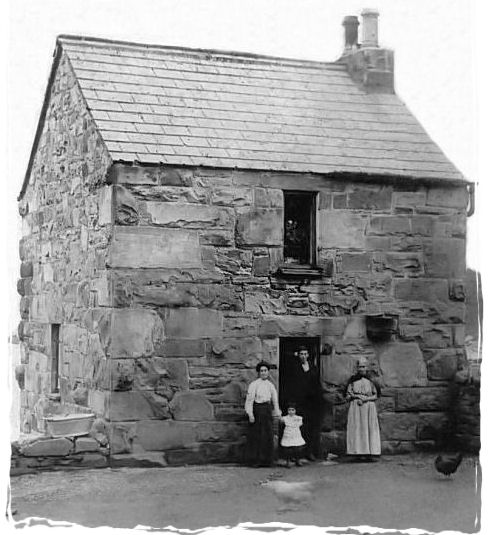
Short History of McMenamin

This information was submitted by Martin and forms part of the Donegal Genealogy Resources website
You may link to this page but not copy it
![]()
A little history of the McMenamin family
The McMenamins were originally from east Donegal, around the Raphoe area, which was rich in farming land. T hey were a clann that arose around 1100s from a man called Meanma O’ Gormley, who was one of the chieftains of the Cineal Moain tribe. The McMenamins were called after this chieftain Mac Meanman - son of Meanma; Meanma means High spirited, so we are the sons of the highspirited one; daughter of would be Nic Mheanman.
Mac Meanman is Gaelic and would be pronounced Mac Manaman - the 'a' is put in for sound but not written. The McMenamins were located at a townland called Kiltole, where they were a special herenagh family who helped look after the church lands and provided their sons and daughters for the priets and nuns for the diocese of Raphoe. In the late 1500s and early 1600s, there was a terrible war of invasion by the Tudor English who drove these ancient families from their ancestral lands, which were rich farm lands.
The Cunninghams took the McMenamin land and all of Ulster was planted, by lowland Scots and English, with families such as Cunningham, Watt, McCains etc (this was done to subdue the rebellious Ulster provence). The McMenamins were pushed to the mountainous areas of West Donegal, into Tyrone, and our branch went with the O Doherty Chieftains up to Inishowen, to the Buncrana area; we have a Shan McManamy there in 1666.
The name MacMeanman began to be broken up and spelt differently - McManama, McMenamy, McManamy, McMinamy - hundreds of variations. Our own branch, up till the 1870s, wrote theirs as McMenamy. The name was standardised around this time to McMenamin. If you are looking for McMenamins leaving Ireland in 1800s it is a good chance they wrote (or were recorded as) McMenamy or McManamy.
Some of the McMenamins were pushed into the western Glenfin area, not far from Raphoe, and they were noted for their beautiful Gaelic language, which they preserved from their glorious Raphoe era. One of these Glenfin McMenamins was a great Gaelic writer known as Séan Ban Mac Meanman (pronounced-Shan bawn Mac Manaman). He has written a number of Gaelic books in beautiful Donegal Gaelic. A great Gaelic scholar called John O Donovan travelled through Glenfin in the 1830s and was amazed by these MacMenamins - he said they were very bright people; they helped him interpret the meanings and old traditions of the area.
A lot of McMenamins began to emigrate during the 1800s, caused by Famines and persecutions of taxes by their British overlords, whereby they were paying rent on land which originally had belonged to their ancestors.
Some took part in the Civil war in USA; some on the Union side and some on the Confederacy side. Ironicly, some even helped drive out the Native American Indians, which was hypocritical after the same had happened to them back in their native land, but that is History, whether right or wrong.
I am descended from the Mac Meanman clan, and also from the McShanes, McCains and Watt families who came over from Scotland during the Plantation of Ulster, so we are quite a mixture now.
Máirtín Mac Meanaman
BACK to Donegal Genealogy Resources
© Donegal Genealogy Resources